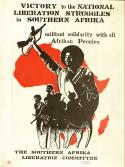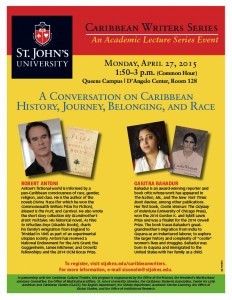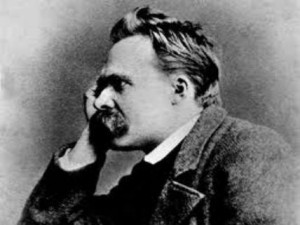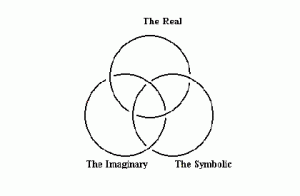Brain Pickings
Brain Pickings is the brain child of Maria Popova, an interestingness hunter-gatherer and curious mind at large, who has also written for Wired UK, The New York Times, Harvard’s Nieman Journalism Lab, and The Atlantic, among others, and is an MIT Futures of Entertainment Fellow.
Brain Pickings is a human-powered discovery engine for interestingness, a subjective lens on what matters in the world and why, bringing you things you didn’t know you were interested in — until you are. Founded in 2006 as a weekly email that went out to seven friends and eventually brought online, the site was included in the Library of Congress permanent web archive in 2012. Here’s a little bit about my 7 most important learnings from the journey so far.
Most of all, Brain Pickings is a record of my own becoming as a person — intellectually, creatively, spiritually — and an inquiry into that grand question of how to live, of what it means to lead a good life.
Enjoy: http://www.brainpickings.org/
African Activist Archive Project
 The African Activist Archive is preserving and making available online the records of activism in the United States to support the struggles of African peoples against colonialism, apartheid, and social injustice from the 1950s through the 1990s. The website includes:
The African Activist Archive is preserving and making available online the records of activism in the United States to support the struggles of African peoples against colonialism, apartheid, and social injustice from the 1950s through the 1990s. The website includes:
– growing online archive of historical materials – pamphlets, newsletters, leaflets, buttons, posters, T-shirts, photographs, and audio and video recordings
– personal remembrances and interviews with activists
– an international directory of collections deposited in libraries and archives
The African Activist Archive Project is collaborating with activists across the U.S. who supported African liberation struggles to create this online archive of more than 5,000 items. The project also assists individuals and groups to deposit their collections in public repositories, including the African Activist Archive collections in the Michigan State University Libraries.
Read more: http://africanactivist.msu.edu
The Caribbean Commons
 Welcome to the Caribbean Commons blog. Begun as part of the Caribbean Epistemologies Seminar at the CUNY Graduate Center, this blog primarily announces Caribbean Studies CFPs, events, and publications of interest to those in the Northeast US. It also archives information from the CE Seminar. Blog run by Kelly Baker Josephs.
Welcome to the Caribbean Commons blog. Begun as part of the Caribbean Epistemologies Seminar at the CUNY Graduate Center, this blog primarily announces Caribbean Studies CFPs, events, and publications of interest to those in the Northeast US. It also archives information from the CE Seminar. Blog run by Kelly Baker Josephs.
Recent Posts:
- Caribbean History, Journey, Belonging, and Race
- Writer’s Retreat with Mervyn Morris
- Radicalism, Revolution, and Freedom in the Caribbean
- Why Haiti Needs a Higher Love V
- Latin American and Caribbean Philosophy, Theory, and Critique
- Special issue of ArtsEtc honoring Kamau Brathwaite
- Identifying Identity – Ancient Faiths, New Lands
- Simone Leigh: Moulting
- Maroons, Indigenous Peoples, and Indigeneity
Read more: https://caribbean.commons.gc.cuny.edu/
Reconfiguring Apartheid Loss: Reading The Apartheid Archive Through A Lacanian Lens
Abstract.
This paper, the first of two focussed on the topic of libidinal attachments between white children and black domestic workers in narratives contributed to the Apartheid Archive Project (AAP), offers a series of methodological insights derived from a Lacanian type of psychoanalytic reading practice. A Lacanian reading practice is one which emphasizes the importance of symbolic juxtaposition, of recombining different facets of texts, and of attempting to locate what I term the “absent mediator” implied by tacit conjunctions and associations within texts. In this paper I focus particularly on a puzzling aspect shared by a series of contributions to the AAP, namely the role of animals in the narratives of white participants, which appear to emerge precisely when the question of a loving relation for a black person is posed. I argue that this narrative device is an attempt to make sense of a prospective relationship, particularly when such a relationship is effectively prohibited by the prevailing rules of interaction. In response to pressing questions of inter-racial loss and love, and in respect of an ambiguous inter-racial relationship, recourse to an animal provides a fantasmatic “solution”, a model of how to manage a relationship that otherwise difficult to understand.
Keywords: Absent mediators, Apartheid Archive, Lacan, psychoanalysis, racism
Introduction
One of the unintended consequences of apartheid’s massive injustices of social division and inequality was – paradoxically – the production of relations of racial proximity. This pinpoints one of apartheid’s internal contradictions: as its white beneficiaries came increasingly to rely on the domestic labour provided by an oppressed black population, so a series of intimate white spheres – the site of the home, and more particularly, the care of children – were effectively opened up to “inter-racial” contact. It is for this reason that, psychoanalytically, the literature discussing the relationship of white children and black – childminders (“nannies”) (Cock, 1980 & 2011; Motsei, 1990; Ally, 2009) is so crucial to an understanding of the libidinal economy of apartheid. This literature speaks to the presence of intimacy within structures of power, to the factor of affective attachments, sexual and familial alike, occurring across seemingly impassable divisions of race. Read more
Refuting Melancholia: Postures Of Melancholic Identification In The Apartheid Archive
 Abstract.
Abstract.
This paper, the second of two focussed on the libidinal attachments of white children to black domestic workers in narratives contributed to the Apartheid Archive Project (AAP), considers the applicability of the concept of social melancholia in the case of such “inter-racial” attachments. The paper questions both the psychoanalytic accuracy, and the psychic and political legitimacy of such an explanation (that is, the prospect of an “inter-racial” melancholic attachment of white subjects to black care-takers). By contrast to the political notion of ungrievable melancholic losses popularized by Judith Butler’s work, this paper develops a theory of compensatory symbolic identifications. Such a theory explains the apparent refusal of identification which white subjects exhibit towards black caretakers and it throws into perspective an important conceptual distinction regards loss. On the one hand there is the psychotic mechanism of melancholic attachment, which expresses absolute fidelity to a lost object, even to the point of self-destructive suffering. On the other, there is the neurotic mechanism of compensatory identification, in which the original object is jettisoned and a substitution found, such that a broader horizon of symbolic and ideological identification is enabled.
Introduction
The companion piece (see: Rozenberg Quarterly) to the current paper investigated a series of Apartheid Archive narratives via the means of psychoanalytic reading practice. That paper and this one share a similar aim: of shedding light on certain of apartheid’s “lost attachments”. The analytical undertaking of a mode of psychoanalytic discourse analysis is not, of course, a-theoretical, and at least one crucial facet of the texts considered – their ostensibly mournful as aspect – begs further conjecture. In supplementing the foregoing article then, I am shifting here from a focus on specific strategies of textual reading practice to a critical exploration of the usefulness of a key psychoanalytic concept in the illumination of these texts. The first of these two papers engaged with the “dathow one might psychoanalytically read the repression of libidinal attachments via certain absent mediators. The current paper comprises an extended theoretical development of psychoanalytically reading a political situation of loss and how this should be conceptualized. Read more
Open Culture ~ 135 Free Philosophy eBooks
 This Open Culture page features a growing list of Free Philosophy eBooks, presenting essential works by Aristotle, Hegel, Kant, Nietzsche, Wittgenstein and many other philosophers. You can generally read these texts on your Kindle, iPad & iPhone, or web browser. For those interested in philosophy, you won’t want to miss the collection of Free Online Philosophy Courses.
This Open Culture page features a growing list of Free Philosophy eBooks, presenting essential works by Aristotle, Hegel, Kant, Nietzsche, Wittgenstein and many other philosophers. You can generally read these texts on your Kindle, iPad & iPhone, or web browser. For those interested in philosophy, you won’t want to miss the collection of Free Online Philosophy Courses.
http://www.openculture.com/free-philosophy-ebooks




